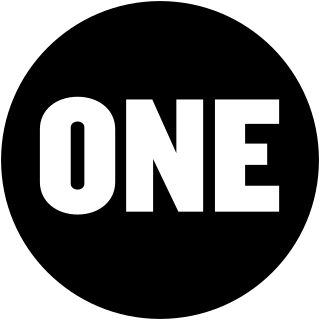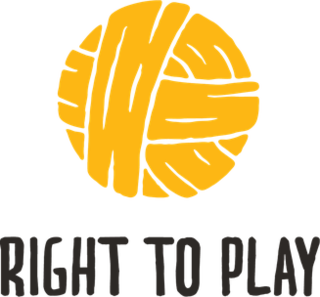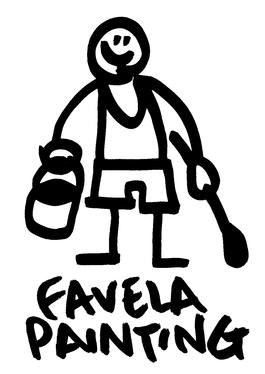Related Research Articles

Favela is an umbrella name for several types of impoverished neighborhoods in Brazil. The term, which means slum or ghetto, was first used in the Slum of Providência in the center of Rio de Janeiro in the late 19th century, which was built by soldiers who had lived under the favela trees in Bahia and had nowhere to live following the Canudos War. Some of the last settlements were called bairros africanos. Over the years, many former enslaved Africans moved in. Even before the first favela came into being, poor citizens were pushed away from the city and forced to live in the far suburbs.
Architecture for Humanity was a US-based charitable organization that sought architectural solutions to humanitarian crises and brought professional design services to clients. Founded in 1999, it laid off its staff and closed down at the beginning of January 2015.

The Conrad N. Hilton Foundation is an American non-profit charitable foundation, established in 1944 by hotel entrepreneur Conrad Hilton. It remained relatively small until his death on January 3, 1979, when it was named the principal beneficiary of his estate. In 2007, Conrad's son, Barron Hilton announced that he would leave about 97% of his fortune to a charitable remainder unitrust which names the foundation as the remainder beneficiary.

We Are Family Foundation (WAFF) is a 501(c)(3) nonprofit organization founded by musician Nile Rodgers and his life partner, Nancy Hunt. Based in New York City—and established in the wake of the 9/11 attacks—WAFF recognizes, funds, and mentors youth leaders who work to bring about positive change. As of 2023, its programs included Three Dot Dash, which funds and mentors young people leading projects that address issues related to basic human needs, such as food, water, and shelter; the Youth To The Front Fund, which supports activists under the age of 30 and youth-led organizations fighting systemic racism and inequality; and Youth To The Table, which brings youth delegations to gatherings including the United Nations General Assembly, the Conference of the Parties and the World Economic Forum.

ONE Campaign is an international, non-partisan, non-profit organization advocating for the investments needed to create economic opportunities and healthier lives in Africa. The campaigning organization uses data, grassroots activism, political engagement, and strategic partnerships to get political leaders to support policies and programs that save lives and improve futures.
Children International is a global nonprofit humanitarian organization that helps children break the cycle of poverty. It addresses children’s critical needs through early intervention and regular interaction in community centers. The goal is to help children overcome the effects of poverty, support their education, and prepare youth to contribute to society.

Emergency is a humanitarian NGO that provides free medical treatment to the victims of war, poverty, and landmines. It was founded in 1994. Gino Strada, one of the organization's co-founders, served as EMERGENCY's Executive Director. It operates on the premise that access to high-quality healthcare is a fundamental human right.

Deutsche Vermögensberatung (DVAG), which loosely translates into English as "German wealth advisors", is a company based in Frankfurt, Germany. The DVAG is active in Germany, Austria and Switzerland. Founded in 1975 by Reinfried Pohl, the company is managed by Deutsche Vermögensberatung Holding and is Germany’s largest stand-alone financial services distributor.

Right To Play is an international non-profit organization whose mission is to use play to empower vulnerable children to overcome the effects of war, poverty, and disease. Right To Play's work is connected to the UN's Sustainable Development Goals, and focuses on four outcome areas: quality education, children's health and well-being, girls' empowerment, and child protection. Headquartered in Toronto, Canada, the organization has programs in 15 countries across Africa, Asia, the Middle East, and has national offices in Canada, Germany, Norway, the Netherlands, Switzerland, the United Kingdom, and the United States.
Translators without Borders (TWB) is a non-profit organization set up to provide translation services for humanitarian non-profits. It was established in 2010 as a sister organization of Traducteurs Sans Frontières, founded in 1993 by Lori Thicke and Ros Smith-Thomas. As of 2022, it had over 100,000 members. TWB's objective is to address language disparities that impede crucial humanitarian efforts. They aim to accomplish this by facilitating collaboration between non-profit humanitarian entities and a volunteer community of translators.
Sexual exploitation and abuse in humanitarian response first came to public attention with the release of a report in February 2002 of a joint assessment mission examining the issue. The joint mission reported that "refugee children in Guinea, Liberia and Sierra Leone have been subjected to sexual abuse and exploitation, reportedly by employees of national and international NGOs, UNHCR and other UN bodies..." Humanitarian agencies responded almost immediately with measures designed to prevent further abuse, setting up an inter-agency task force with the objective of "strengthening and enhancing the protection and care of women and children in situations of humanitarian crisis and conflict..." In 2008 there were signs that sexual exploitation and abuse of beneficiaries not only continued, but was under-reported. In January 2010, the ECHA/ECPS task force developed a website devoted to protection from sexual exploitation and abuse (PSEA) by personnel of the United Nations (UN), non-governmental organizations (NGOs) and other international organizations.

The Morro da Babilônia is a hill in the Leme neighbourhood of Rio de Janeiro, separating Copacabana beach from Botafogo. It is home to a favela known by the same name, as well as the favela Chapéu Mangueira. Morro da Babilônia is an environmentally protected area.
ProZ.com is a membership-based website targeting freelance translators. Founded in 1999, it is mainly used for posting and responding to translation job offers. As of 20 October 2018, ProZ.com reports more than 960,000 registered users, spanning more than 200 countries and territories worldwide.

Black Tie Dinner is a formal charity dinner held each year in Dallas, Texas to raise money for the North Texas lesbian, gay, bisexual, transgender, and queer (LGBTQ) community. The first dinner was held in 1982. Since its inception, Black Tie Dinner has remained one of the largest LGBTQ fund-raising dinners in the nation, both in attendance and distribution. Today, the dinner is attended by over 2,500 guests per year, and has an annual distribution of over $1 million. Each year, Black Tie Dinner selects up to 20 LGBT focused organizations in the North Texas area to receive proceeds from the dinner, in addition to one standing National beneficiary, the Human Rights Campaign Foundation. To date, Black Tie Dinner has raised over $30 million.

Favela Painting is the name of a series of community artwork in Rio de Janeiro, Brazil painted by Dutch artists Jeroen Koolhaas and Dre Urhahn with the help of local people. Firmeza Foundation, an organization based in Netherlands runs the project. The project is mainly funded by grants and donations and the main idea is to collaborate with the local people to create community artwork.
The Hear the World Foundation is a corporate nonprofit foundation founded by Sonova working towards equal opportunities and better quality of life for people with hearing loss. The Foundation operates as grant-giver supporting project-partnerships in four specific areas:

Nakivale refugee settlement is a settlement located in Isingiro District near the Tanzania border in Southwest Uganda.
Andreas Zivy is a Swiss businessman based in Binningen, Switzerland. He is the chairman of Swiss agribusiness Ameropa Holding AG.
Ameropa Holding AG is a Swiss agribusiness, headquartered in Binningen, Switzerland (Basel-Landschaft), that engages in the global distribution of fertilizers and grains. The company was founded in 1948 by Arthur Zivy and his son, Felix Zivy. Andreas Zivy is the chairman of the company. It has operations in over 30 countries across all continents.
Robert Hakiza is a Congolese researcher and founder of Young African Refugees for Integral Development (YARID) a community-based organization established by refugees in Uganda, operates a myriad of programs aimed at offering informal language instruction, facilitating Internet access, and providing vocational training to urban Kampala's refugee population.
References
- ↑ "The Ameropa Foundation was founded in December 2001 by Andreas Zivy and Nicole Miescher". globaldispatch.com. 2015-11-02. Retrieved 2016-12-11.
- ↑ Jensen, Donald (2015-10-29). "Andreas Zivy and His Management Team At Ameropa". businessmediagroup.co.uk. Retrieved 2016-12-11.
- ↑ The Amorepa Foundation Project details Archived 2016-12-20 at the Wayback Machine Retrieved 2016-12-11
- ↑ Rule, Dan (2014-08-24). "Swiss architects build favela stadium". smh.com.au. The Sydney Morning Herald . Retrieved 2016-12-11.
- ↑ "Arsitek Swiss Sukses Bangun Gedung Olahraga di Brasil". kompas.com. 2014-04-22. Retrieved 2016-12-11.
- ↑ "Building Optimism: Public Space in South America". cmoa.org. 2016-02-13. Retrieved 2016-12-11.
- ↑ "Mapping Brazil - Architecture: Professional Practice". dutchculture.nl. Dutch Culture. 2016-12-11. Retrieved 2016-12-11.
- ↑ "Right to Play 2015 Annual Report". righttoplay.ch. Right to Play. 2016-12-11. Archived from the original on 2017-03-21. Retrieved 2016-12-11.
- 1 2 3 Projects in Northeastern Brazil, Uganda and Romania Archived 2016-12-20 at the Wayback Machine Retrieved 2016-12-11
- ↑ "Wir freuen uns, Ihnen unsere Partner vorzustellen Sie bilden das wertvolle Fundament unserer Arbeit". righttoplay.ch. Right to Play. 2016-12-11. Archived from the original on 2017-03-21. Retrieved 2016-12-11.
- ↑ Victor, Shirley (2016-03-06). "Ameropa's High-End Business Functions and Social Responsibility". medium.com. Medium. Archived from the original on 2016-12-20. Retrieved 2016-12-11.